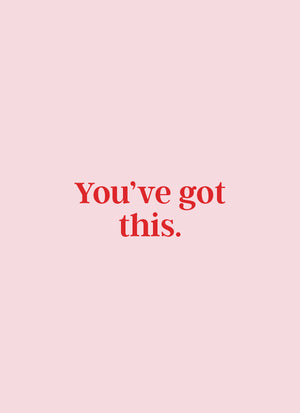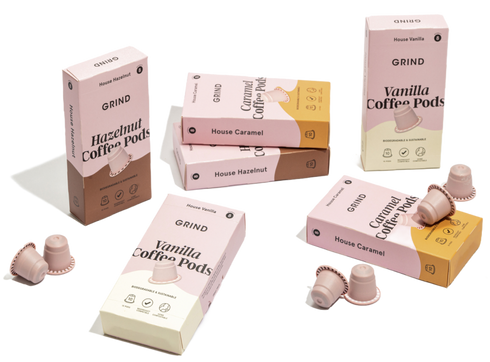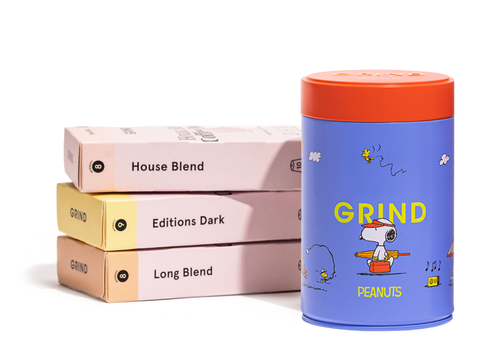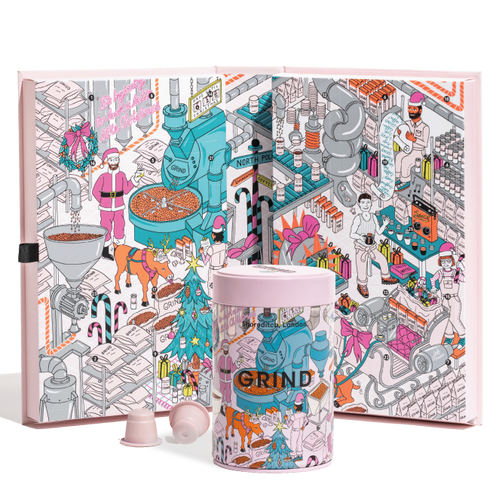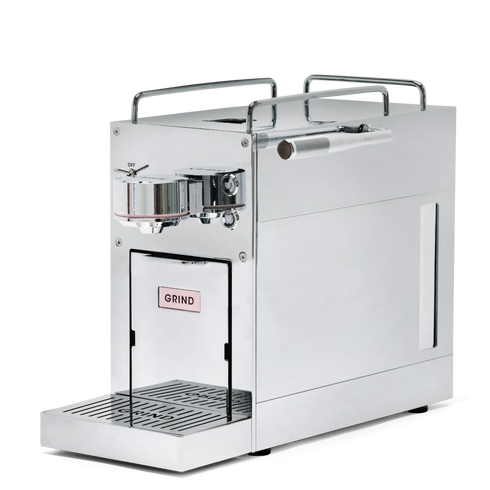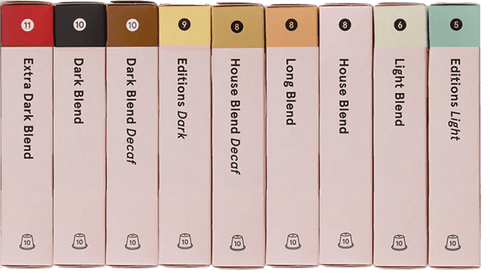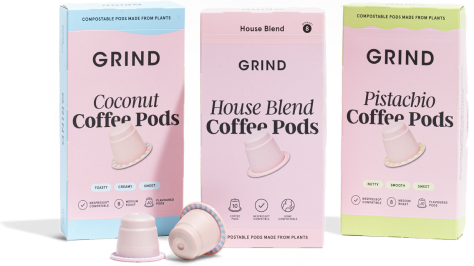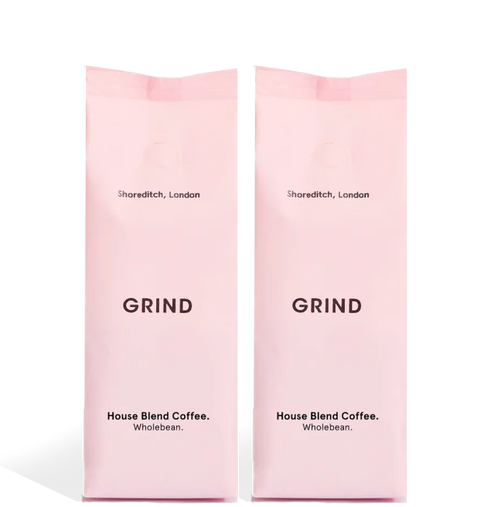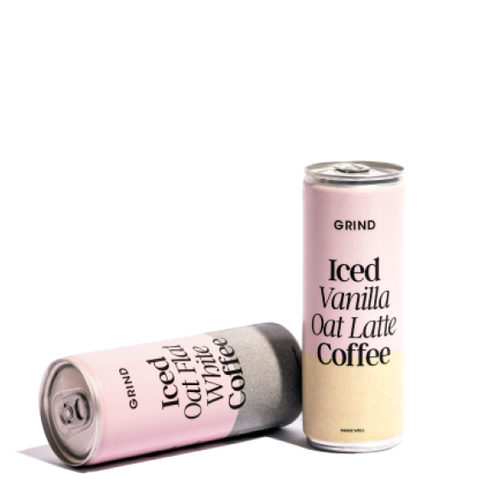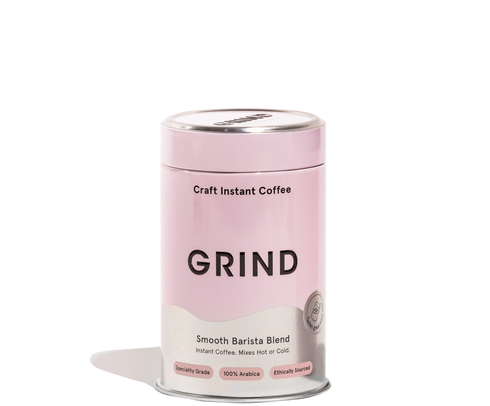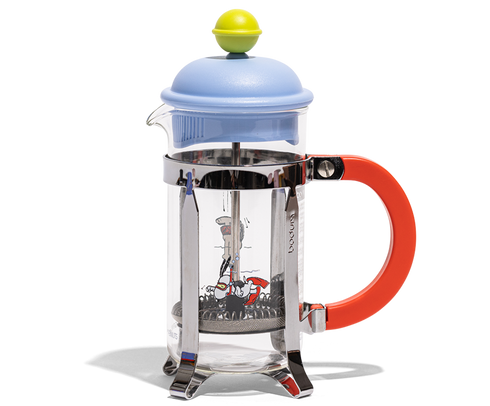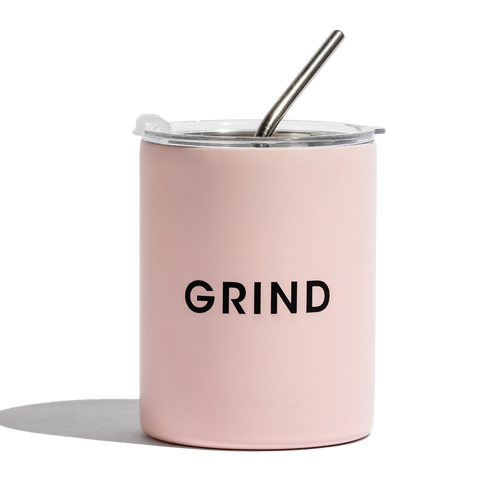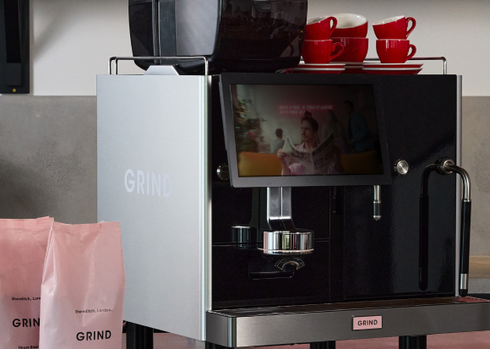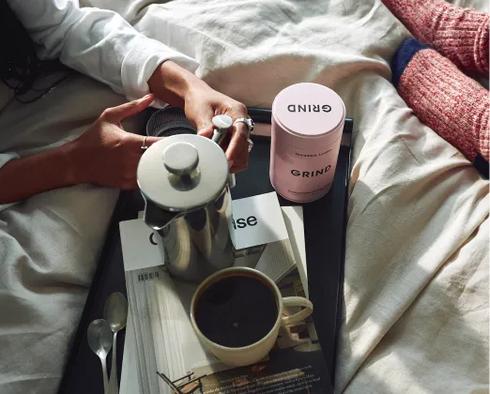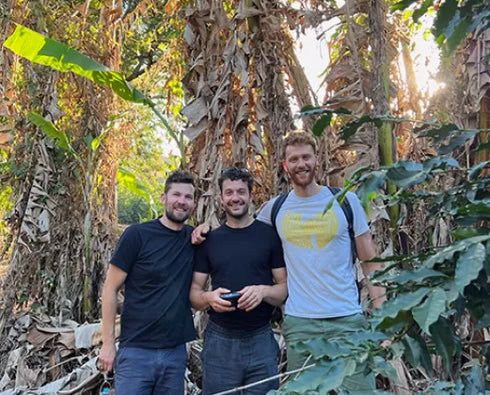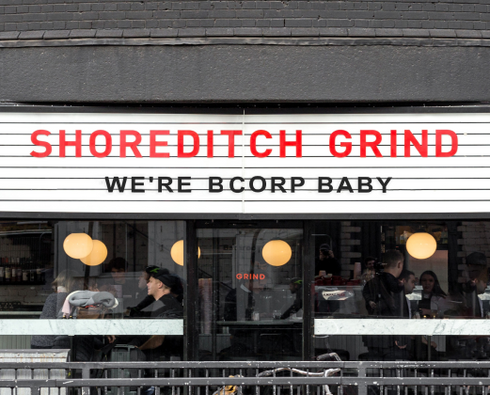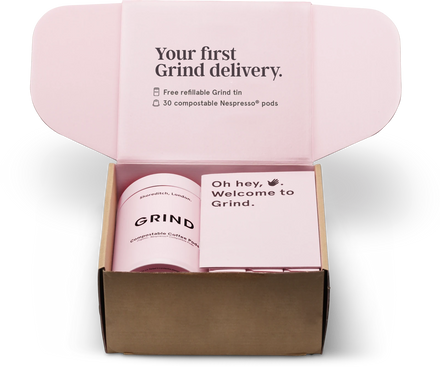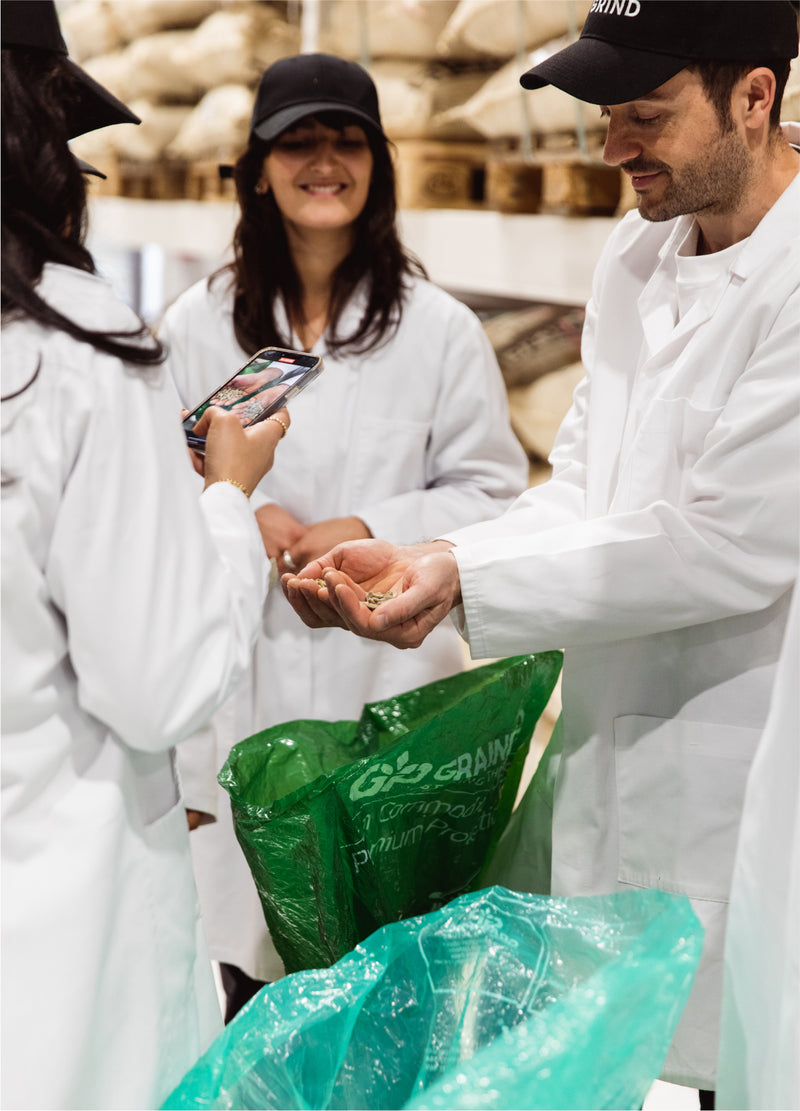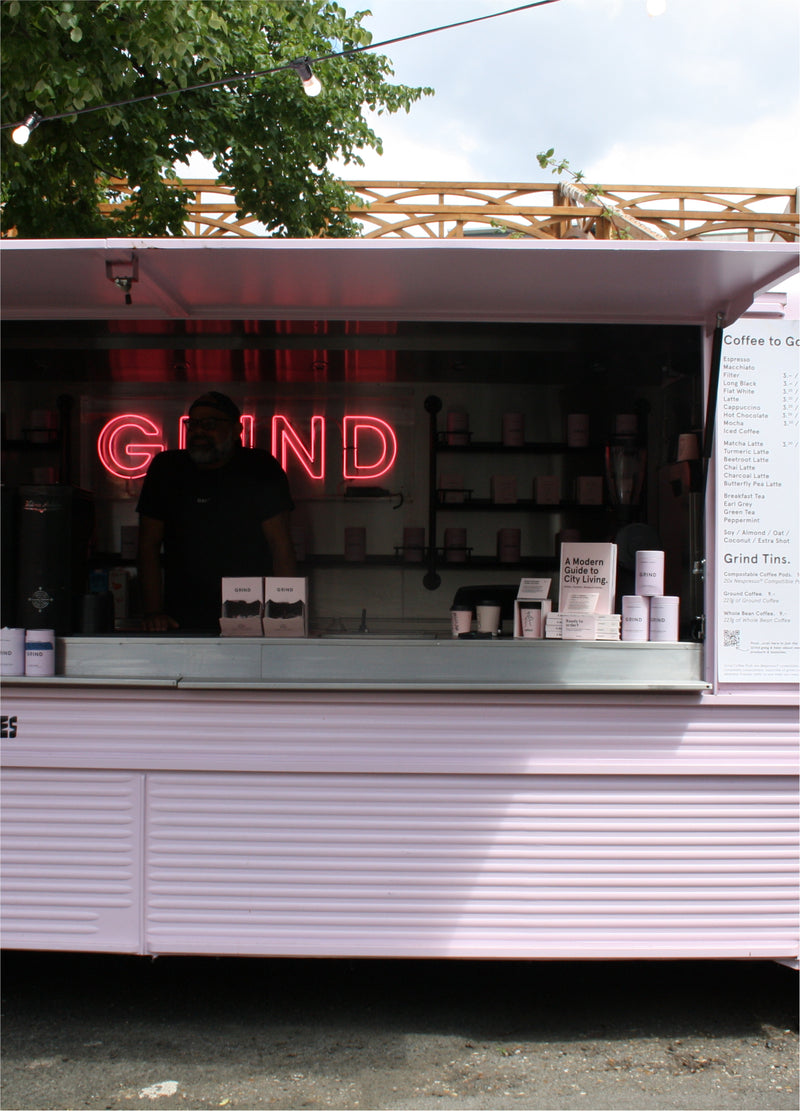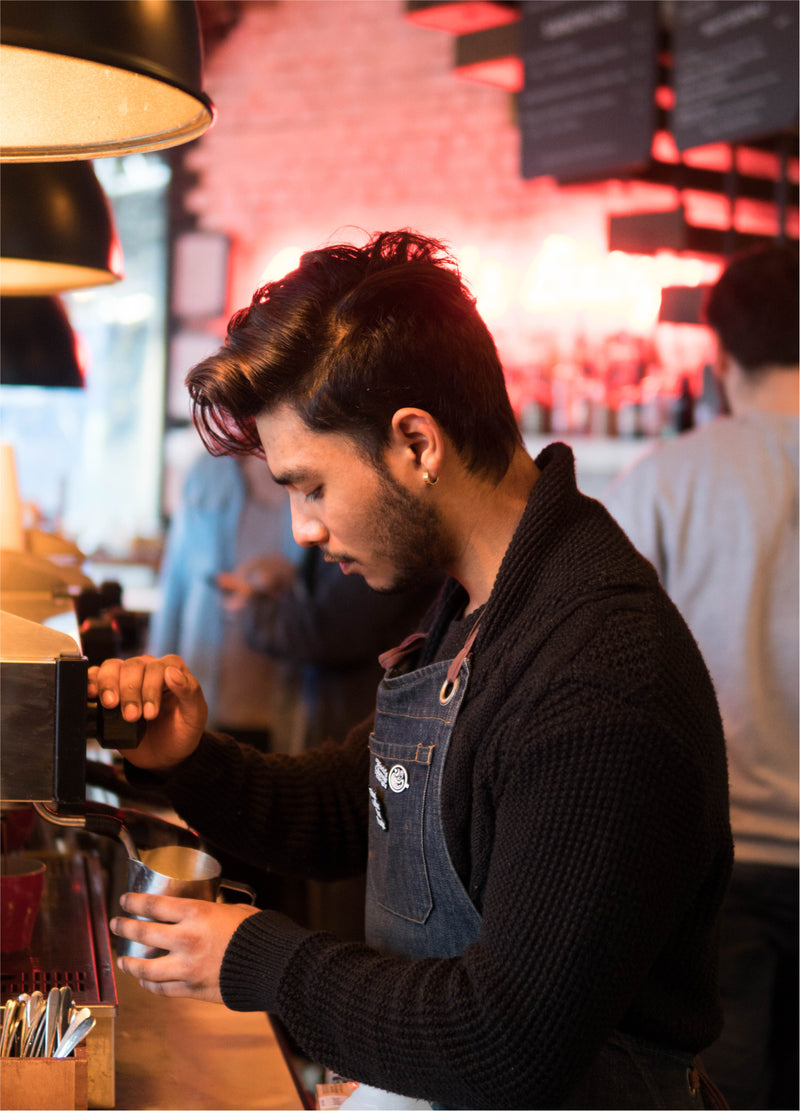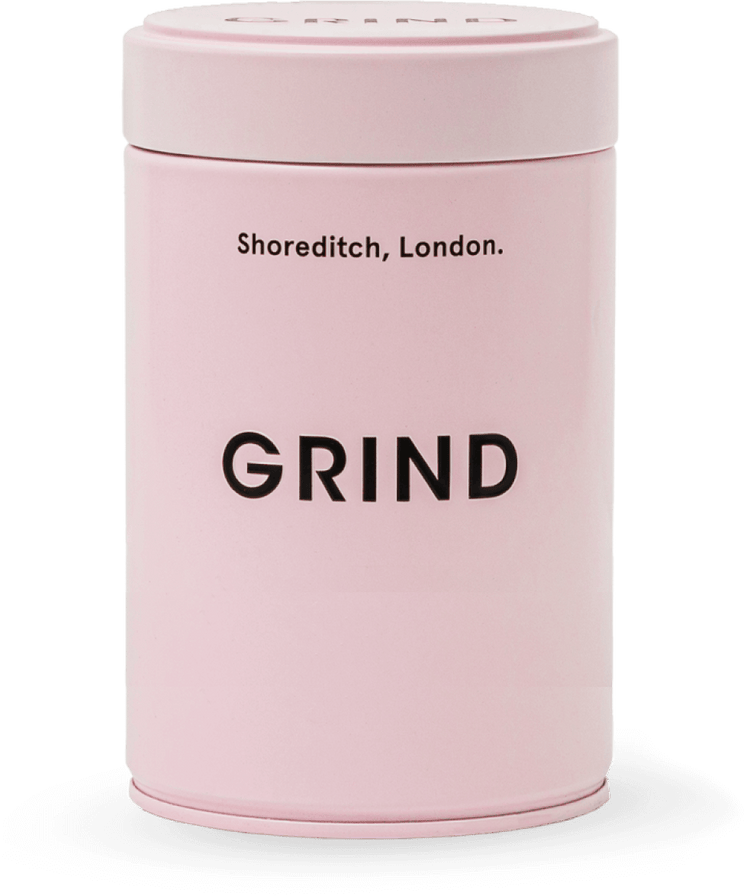
Great Coffee Doing Better®
Sustainable Materials
Grind coffee pods were the first in the UK to be certified home-compostable. They're 100% plastic- and aluminium-free, made only from organic matter (PHA), offering a sustainable alternative to the millions of plastic and aluminium pods that end up in landfills every day and take hundreds and hundreds of years to decompose.
Unlike other plant-based coffee pods, ours have an oxygen barrier that keeps your coffee fresh for months, without losing its fresh flavour. If you're interested, you can see the full life cycle of a Grind pod here. We also avoid single-use plastic like it's the plague (because, in many ways, it is), making sure our packaging is fully recyclable.
Our pods are made from PHA, a biopolymer produced from natural sources that fully biodegrades to carbon dioxide, water, and compost, creating a circular product: from plant to pod to plant again.
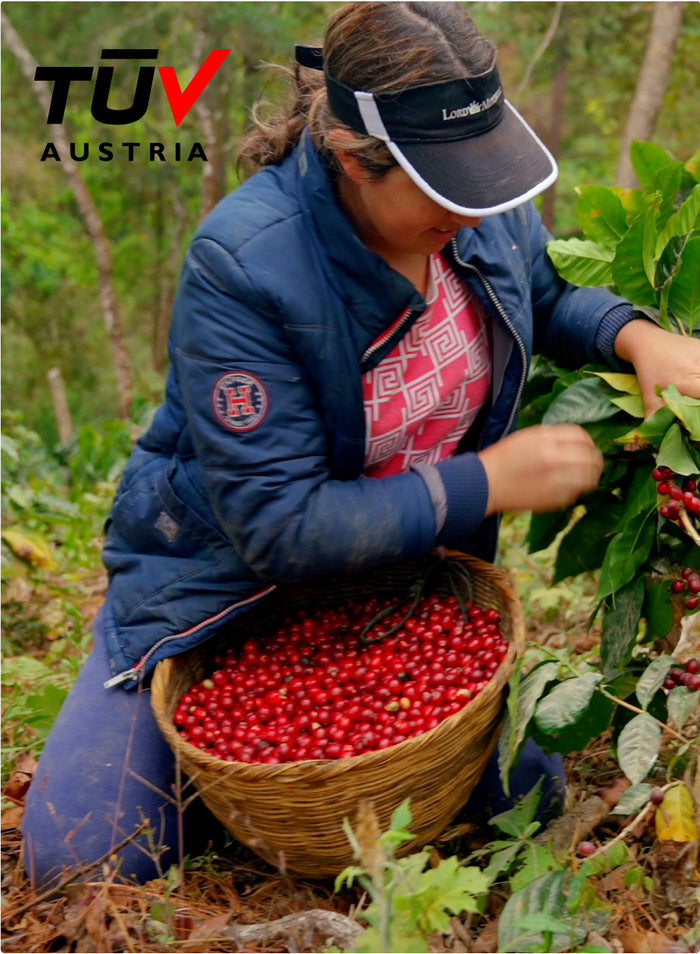
Grind coffee pods were the first in the UK to be certified home-compostable. They're 100% plastic- and aluminium-free, made only from organic matter (PHA), offering a sustainable alternative to the millions of plastic and aluminium pods that end up in landfills every day and take hundreds and hundreds of years to decompose.
Unlike other plant-based coffee pods, ours have an oxygen barrier that keeps your coffee fresh for months, without losing its fresh flavour. If you're interested, you can see the full life cycle of a Grind pod here. We also avoid single-use plastic like it's the plague (because, in many ways, it is), making sure our packaging is fully recyclable.
Our pods are made from PHA, a biopolymer produced from natural sources that fully biodegrades to carbon dioxide, water, and compost, creating a circular product: from plant to pod to plant again.
Regenerative
Farming
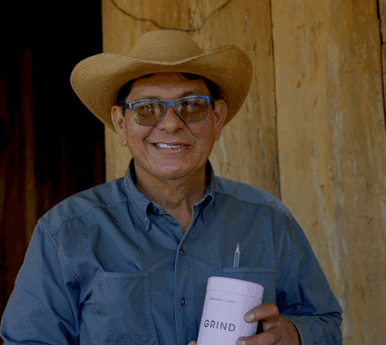
Regenerative
Farming
Ethical Trading
Click to find our farms
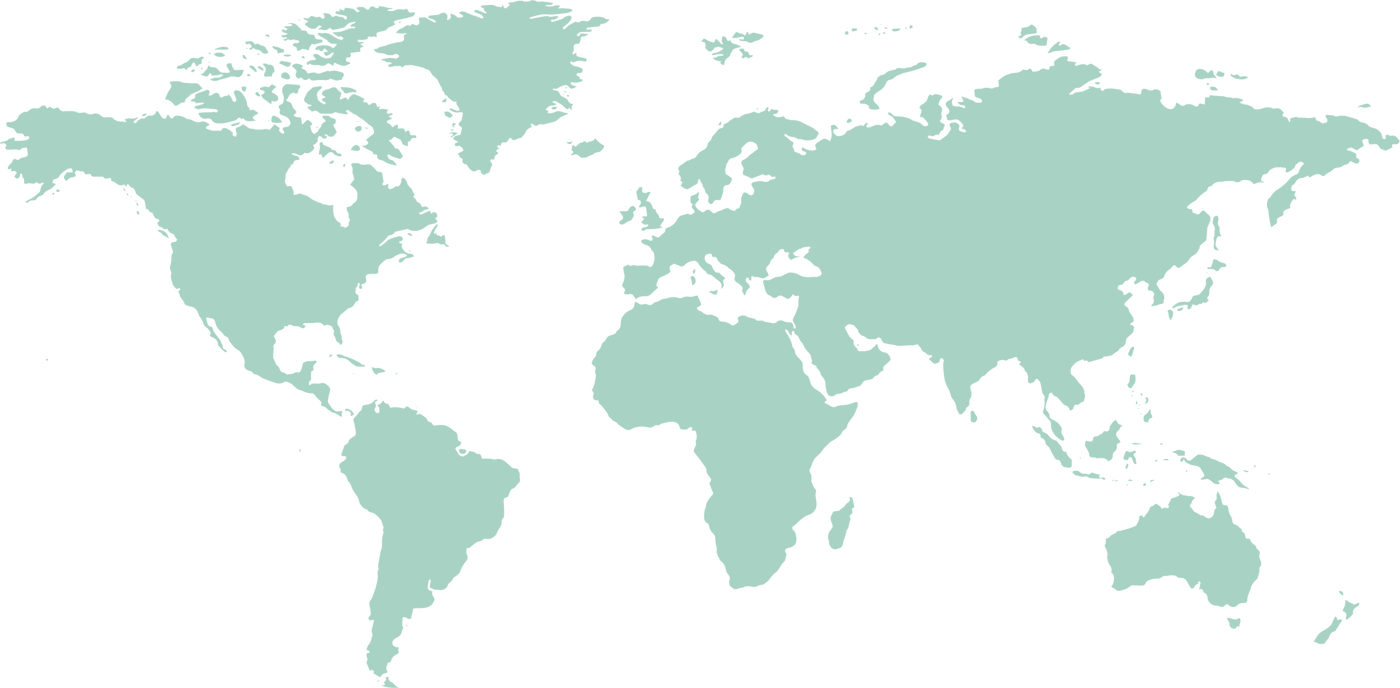
Primavera
Elevation: 1035m
Los Naranjos
Elevation: 1445m
Noruega
Elevation: 1500m
Los Angeles
Elevation: 1450m
Tacuba Cooperative
Elevation: 1480m
Dota Cooperative
Elevation: 1500m
Santa Monica
Elevation: 1500m
Vale do Sol
Elevation: 950m
Santa Lucia
Elevation: 980m
Jaguara
Elevation: 1000m
Maria Vitoria
Elevation: 470mm
Caica de Frutas
Elevation: 900mm
Terras Altas
Elevation: 950mm
Ishema Cooperative
Elevation: 1615m
Buku Hambela Cooperative
Elevation: 2300mm
Venkids Valley Estate
Elevation: 1000m
Kerehaklu Estate
Elevation: 600m
Better than Fair Trade
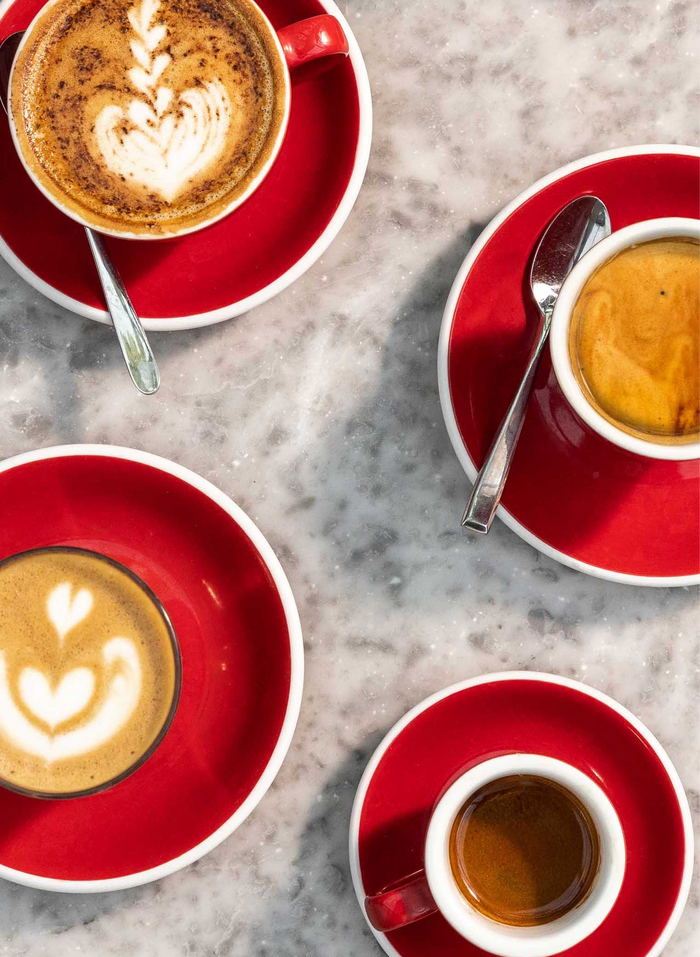
Better than Fair Trade
In 2024, we recovered 42,800,000 pods’ worth of ocean-bound plastic. That’s about 64,000 kg.
Guess you could say we’re waving
goodbye to ocean plastic.
Compostable Packaging
Our home-compostable coffee pods are made from PHA, a biopolymer produced by microorganisms through bacterial fermentation. That isn't as gross as it sounds, we promise: the process creates a natural material with plastic-like tendencies that fully biodegrades, creating a circular product—from plant to pod to plant again.
Our whole bean & ground packaging is also 100% industrially-compostable. These bags are made from wood pulp, PLA (polylactic acid, a monomer derived from renewable, organic sources), and PBAT (polybutylene adipate terephthalate, a biodegradable copolymer).
Yes, composting is very cool now
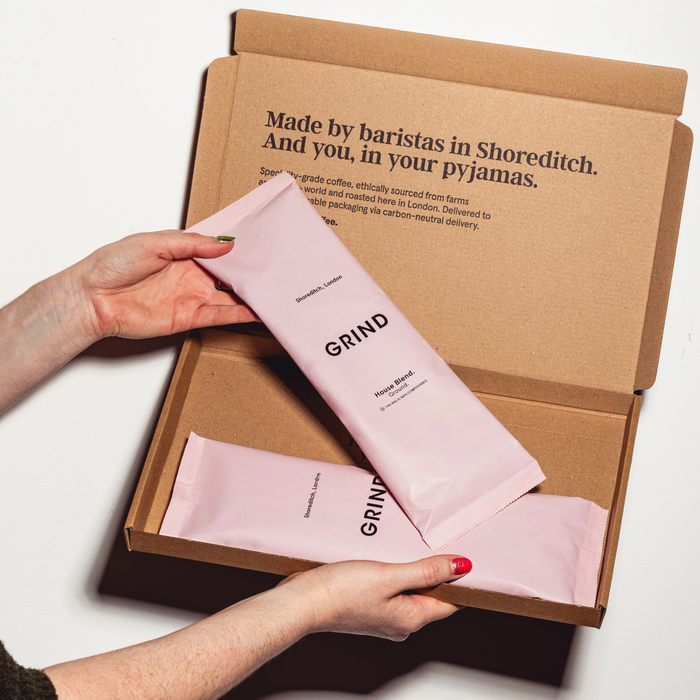
Our home-compostable coffee pods are made from PHA, a biopolymer produced by microorganisms through bacterial fermentation. That isn't as gross as it sounds, we promise: the process creates a natural material with plastic-like tendencies that fully biodegrades, creating a circular product—from plant to pod to plant again.
Our whole bean & ground packaging is also 100% industrially-compostable. These bags are made from wood pulp, PLA (polylactic acid, a monomer derived from renewable, organic sources), and PBAT (polybutylene adipate terephthalate, a biodegradable copolymer).
Yes, composting is very cool now


